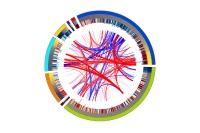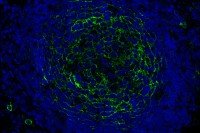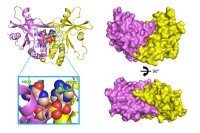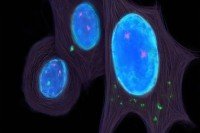
New Research Shows How Cancer Rewires a Key Immune Pathway To Spread
A collaboration between MSK and Weill Cornell Medicine discovered a new relationship between cancer cells and the immune system, and shows how cancer can selfishly hijack a normally helpful immune pathway.

MSK-Led Research Finds Unexpected Link Between Chromosomal Instability and Epigenetic Alterations
MSK-led research found an unexpected link between chromosomal instability and epigenetic alternations, both of which are hallmarks of cancer — especially advanced, drug-resistant cancers.

Taking the STING Out of Cancer: Discovery about How Cancer Cells Evade Immune Defenses Inspires New Treatment Approach
The research identifies a protein called ENPP1 as a potential drug target in the treatment of advanced cancers with chromosome instability.
Roundup

Top 10 Stories of 2018, Cancer Research Edition
Take a look back at some of the year’s biggest news in cancer research.
In the Lab

Putting the STING in Immunotherapy: Research Focuses on Ways to Improve Cancer Treatments
Researchers are looking for ways to make cancer cells more visible to the immune system.
In the Lab

Escape Artists: Cancer Cells Mimic Immune Cell Activity to Spread
Researchers have discovered that cancer cells may hijack an immune response to spread from a primary tumor to distant organs.





